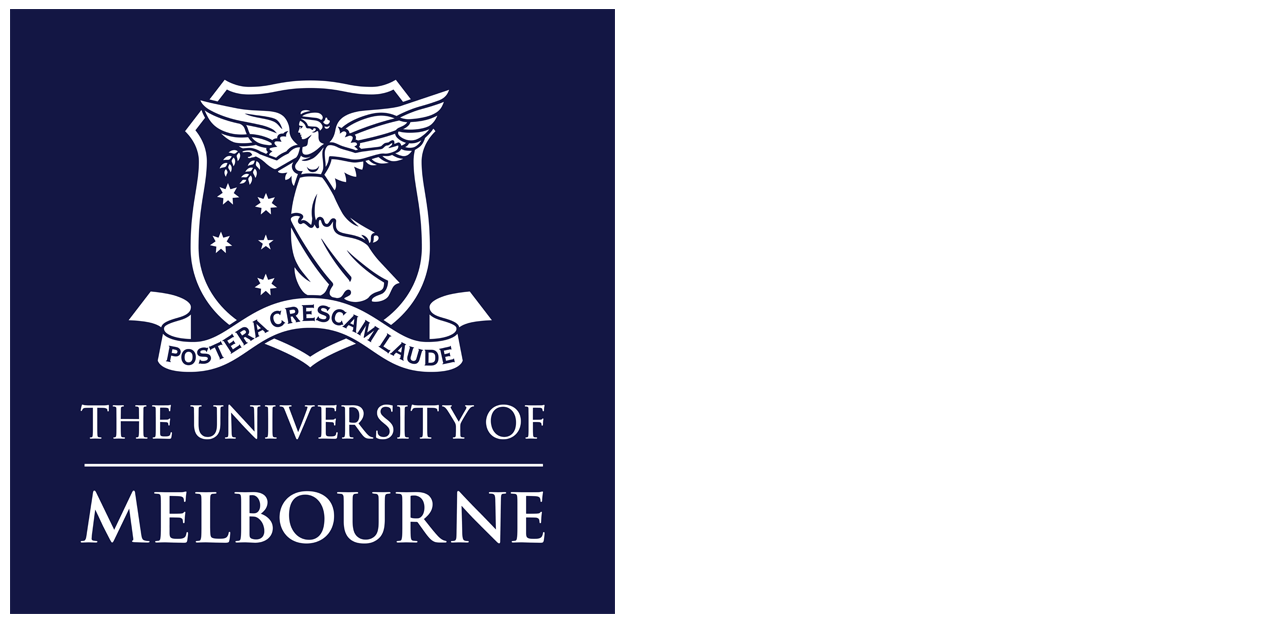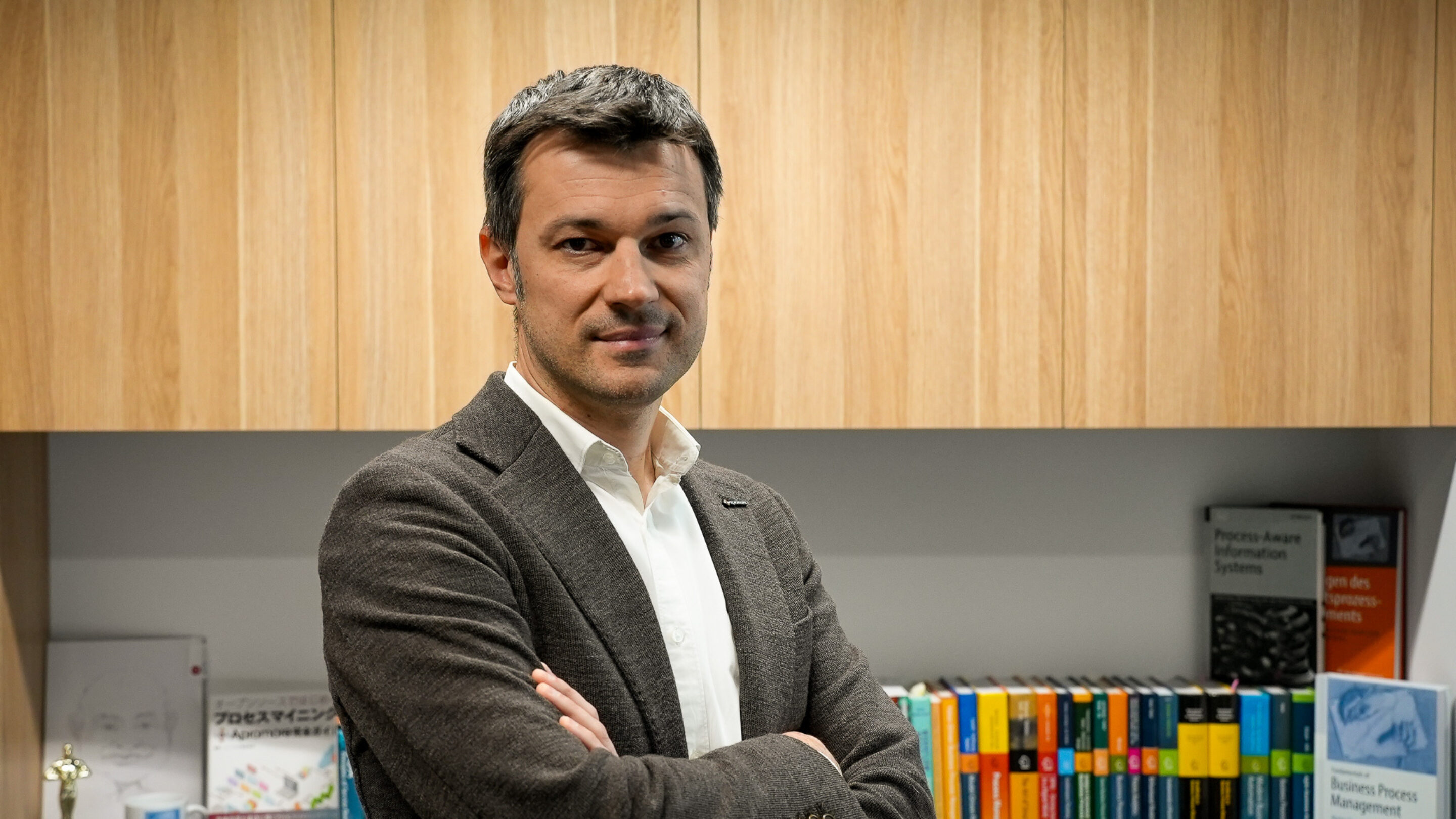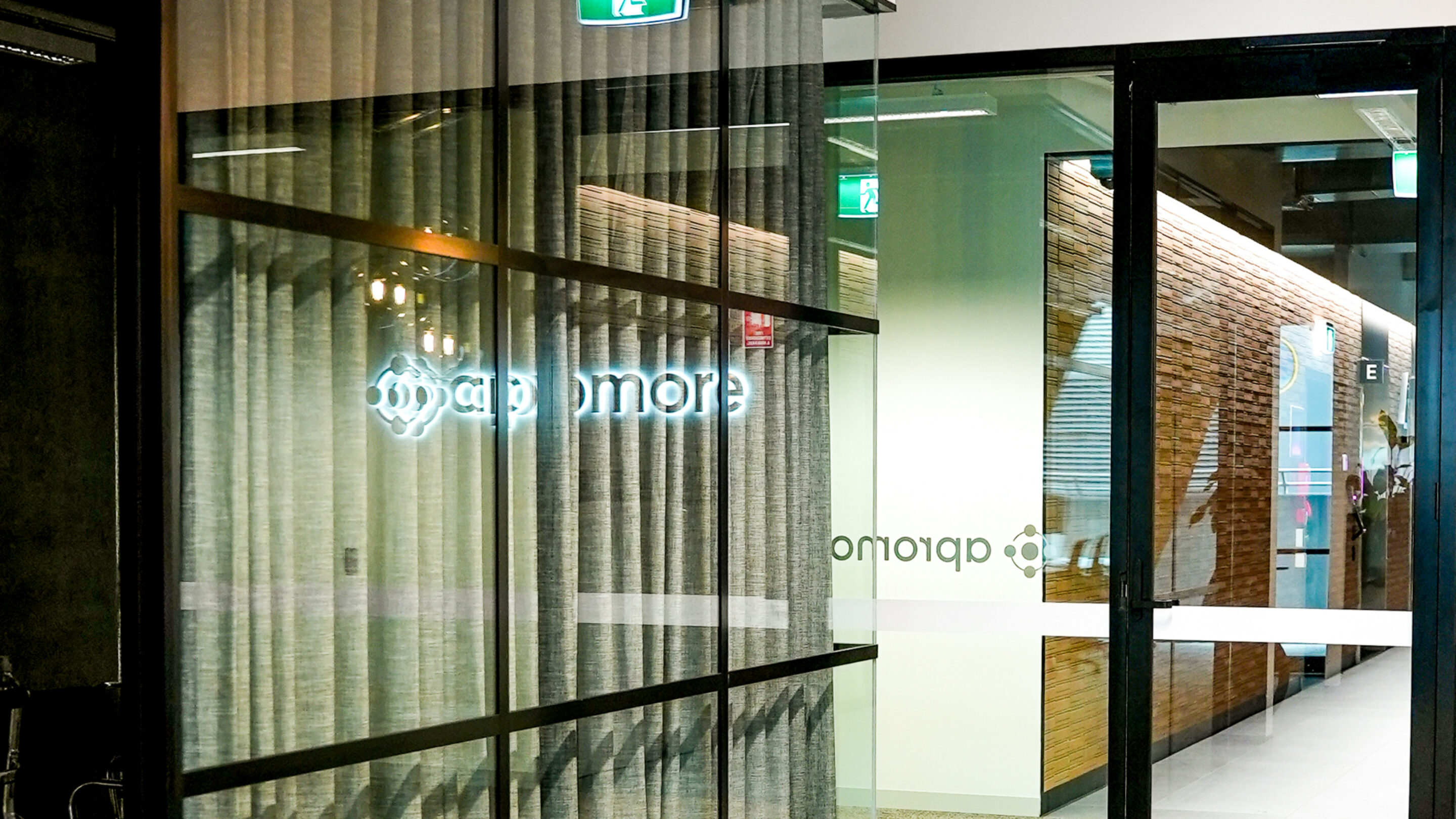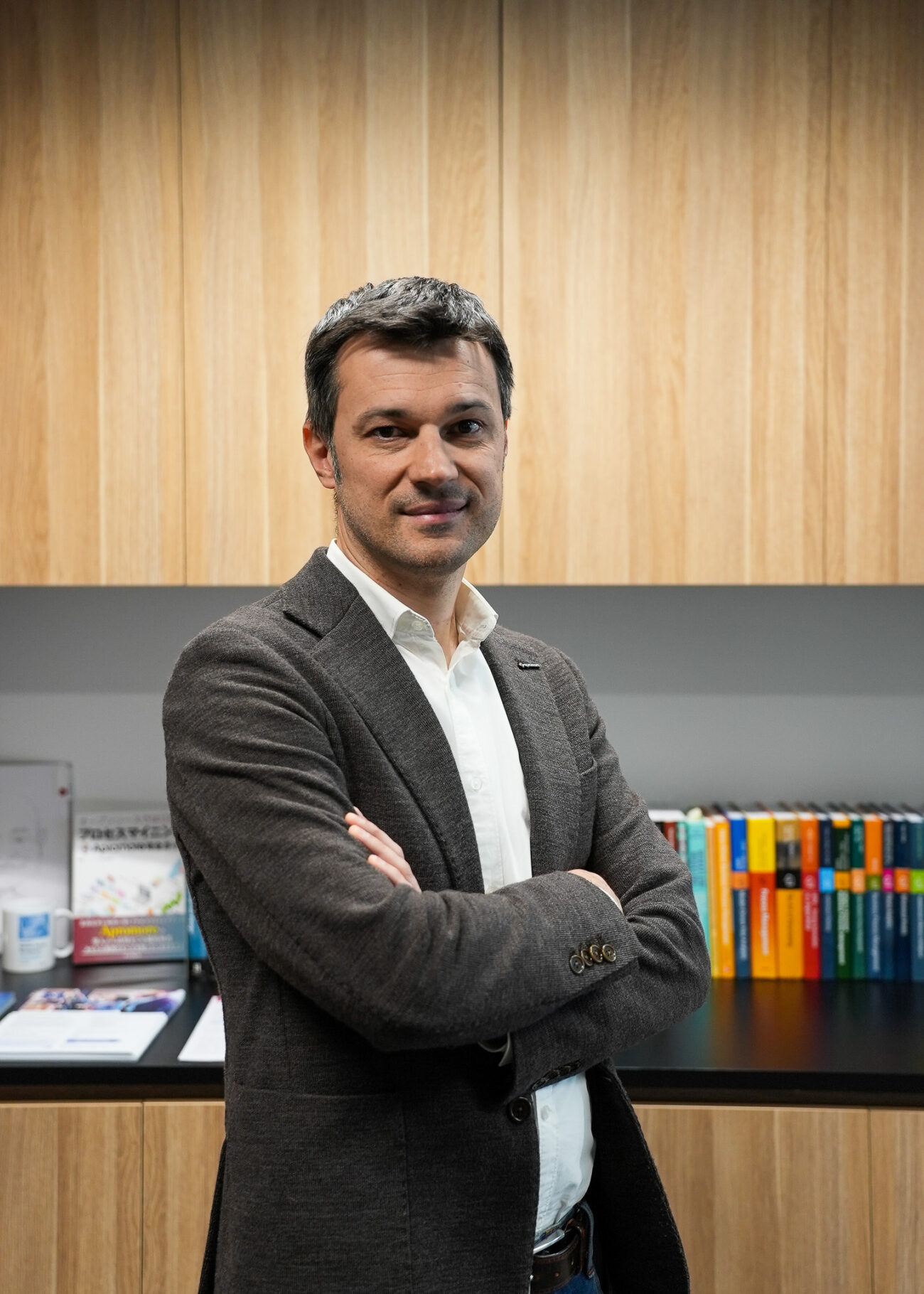

When Marcello La Rosa was completing his Ph.D. in business process management, the computer scientist professor never predicted that within only a few years his own company would be working alongside some of the world's largest in helping them improve their real-world business processes.
The Sicilian-born CEO and Co-Founder of Apromore now finds himself at the helm of a process mining company that is on the cutting edge of the digital transformation affecting businesses worldwide. With the ever-growing presence of enterprise systems such as Salesforce or Oracle now proving vital to the way businesses transact their everyday dealings, Prof. La Rosa sees an opportunity for Apromore to become a household name amongst companies worldwide that are looking to better their bottom line and improve their customer experience.

To start, can you please introduce yourself?
I'm Marcello La Rosa, I'm the CEO and co-founder of Apromore a business process mining platform, and I am also a professor of information systems with a focus on process mining at the School of Computing and Information Systems at The University of Melbourne.
Can you tell us a bit about your background that led to your current roles?
I started working in process mining soon after I finished my Ph.D. thesis, which was somewhat related to process mining. My thesis focused on process improvement or more broadly speaking, business process management. As organisations gain higher data maturity, process mining becomes a stronger application case for organisations that wish to use data to inform and drive digital transformation. My research has always been application focused, meaning that whatever we developed was driven by a concrete problem experienced by organisations. We found that the techniques we were building in process mining were readily applicable at organisations
Can you explain what process mining is in lay terms?
Process mining allows organisations to understand where and how to intervene in their business processes to achieve their strategic objectives. Organisations are continuously under pressure and market conditions these days have led organisations to accelerate initiatives aimed at reducing their expenditure. They look at cost leadership, improvements to operational efficiency, all while maintaining high satisfaction from their customers. If you look at the financial sector or the health care sector or the aged care sector, these are highly regulated industries. So, in addition to the need for cost-cutting and operational efficiency, there is also an ever-growing pressure from regulatory bodies.
Process mining preaches a paradigm shift. It offers a chance for organisations to understand how their operations are performing. Traditionally, the way we've tried to understand business processes and figure out where to intervene and make improvements was by engaging people to participate in interviews and workshops. That approach is clearly biased by the people we engage with and only offers a partial view of the actual business processes. Having a partial bias view as a starting point doesn't allow us to maximise the opportunity for improvement.
What process mining does is to shift from a confidence-based model — that is the confidence in the people who participate in these interviews and workshops — to an evidence-based model. With process mining, we look at the digital footprint that business

processes leave on top of the enterprise systems that are used to run the business. For example, you have enterprise systems like Salesforce, SAP, Oracle or Microsoft, we extract this transactional data and get process-based analytics that helps us understand what the process looks like such as the structure of the process, its performance, where the friction points are and its degree of compliance. The idea is to use these insights to formulate targeted interventions for the strategic objectives that we want to achieve.
Was it a conscious decision to make all of your research applicable to business with the view of creating something such as Apromore?
When we started working on process mining from a research viewpoint, we weren't thinking about any commercialisation opportunity. At the beginning of 2010, we were more concerned with establishing the foundations of the discipline, the opportunity to commercialise our research in the form of Apromore was coincidental. We started delivering consultancy services in process mining through the University, and to do that we built a product that could help us showcase the outcomes of our research and help us deliver those services more efficiently.
As we were doing so, we realised that the organisations we were serving both in Australia and in Europe, were not only interested in the outcomes of our consultancy services, but also in the software that we were using to deliver those services. That's when we realised that there was a significant commercialisation opportunity.
What types of industries and businesses do Apromore typically work with? Are there any industries that you think could use process mining but currently aren’t?
As organisations reach a higher level of data maturity, they need to find the use cases to get the most out of their data. With Apromore, we've been focusing mostly on service intensive organisations who run business processes that feature a high number of interactions with customers. For example, banks, superannuation, insurance and wealth management organisations. These companies often have data clouds in place that we can tap into to extract the data that we need for process mining. Other sectors include utilities, energy and the public sector, as well as the financial services industry.
There are areas though where process mining has not been applied widely yet. One example is health care. Hospitals do not think about process mining as a type of technology to help them improve their operations. Yet, based on the experience we've had with several hospitals and health institutes, these organisations can benefit a lot from process mining.
Traditionally, the problem with healthcare has been the cultural barrier by the practitioners and the level of resistance to take advice from someone outside of health care. For Apromore, it’s about asking how healthcare practitioners could operate in a way that would reduce operational costs and increase efficiency. The focus has always been on the quality of patient care, but there can be issues in the way patients are being treated even when the quality of care is kept to a high standard. To further elevate the level of patient care, process mining could also help to ensure that clinical guidelines are followed and there is compliance with regulations.

Would there be patient confidentiality concerns around process mining in healthcare?
Confidentiality is a topic that pops up often with process mining. It is not only a concern in healthcare but in almost any customer-service intensive business. A bank or an insurance company, they are handling highly confidential information like the financial dealings of customers. So, confidentiality is generally a widespread concern but there are ways to deal with this.
One simple way is to avoid the problem a priori. Most of the time, confidential information is not required for process mining as the information can be anonymised. For example, you don't need the credit card details of an applicant to find out whether the applicant is served in the most efficient way. Similarly, a patient’s details are not necessary to understand whether there are too many sequences in place to treat that patient.
Why did you choose Melbourne Connect as the home for Apromore?
We chose to build the Apromore headquarters in Melbourne Connect because it was the most natural choice. I'm still affiliated with The University of Melbourne, and Apromore has always been built on our own research. Keeping that close connection with research is one of the unique selling propositions of Apromore versus other products in the market. Melbourne Connect offers the opportunity for Apromore to be co-located with the process mining research arm of The University of Melbourne. It’s a great opportunity for us to tap into the University.
Being established at Melbourne Connect has also opened several other opportunities. Working close to like-minded founders and being surrounded by the Melbourne start-up ecosystem helps, we feel like we are in the right environment. The facilities are awesome for co-working and meeting rooms, but also for event spaces. A couple of months ago we organised a fireside chat with some industry folks, and we had a great turnout of people in the Studio.
How does being based at Melbourne Connect help Apromore connect with potential talent from the University?
There is a continuous flow of students and graduates from the University into Apromore. There are currently 12 Ph.D. graduates in process mining and machine learning that work at Apromore, and half of them have come from The University of Melbourne. We also have yearly student project offerings to the Masters of Software Engineering student cohort and that has already led to four students being recruited by Apromore. We really value the co-location with the University and the ability to pitch project ideas to the student cohort.
Do you have any use cases of companies that you've worked with where you have been able to help them transform how they transact their business processes through process mining?
We did help a large insurance company based in Europe to improve their compliance in the motor vehicle claims handling process. As part of this process, they have service level agreements (SLAs) by which they need to handle claims. Their key objective was to become more compliant with these service level agreements, because if they don't meet the SLAs they can be subject to fines from the regulatory bodies. Using process mining they were able to identify opportunities for reducing their operational costs and improve their compliance by 30 to 40% in the course of a couple of months.

Where would you like to see Apromore in five years?
We would like to be as pervasive as possible with Apromore. Within five years, we’d really like to see Apromore become a strategic topic within an organisation. Gartner predicts that by 2025, at least 80% of organisations will have 10% of their business functions supported by process mining, so we would like to be in most of those organisations, and the way to get there is by being strategic. The way we are pitching process mining with Apromore is that it is not a one-off project, but a program. It is a program within the organisation where you improve processes and then you transfer knowledge from the process mining team to the various business units that will take over the active management of the processes. This is when process mining becomes pervasive.
To achieve that you need an approach that scales easily, and we believe that our approach is winning because we have built a product that is very intuitive and easy to use because it requires no code. You do not need any input from technical users to drive value. If you have a tool that is very intuitive, it's easy to upskill teams. The time required to build teams can be shortened and speed delivers value. That's our key differentiator and that's how we believe process mining can be democratised.
Thank you very much for your time Marcello, we look forward to Apromore continuing to grow at Melbourne Connect and are excited to see what comes next for the company.